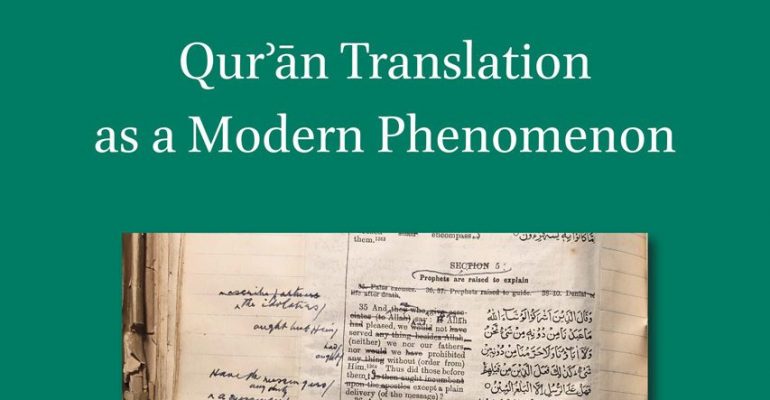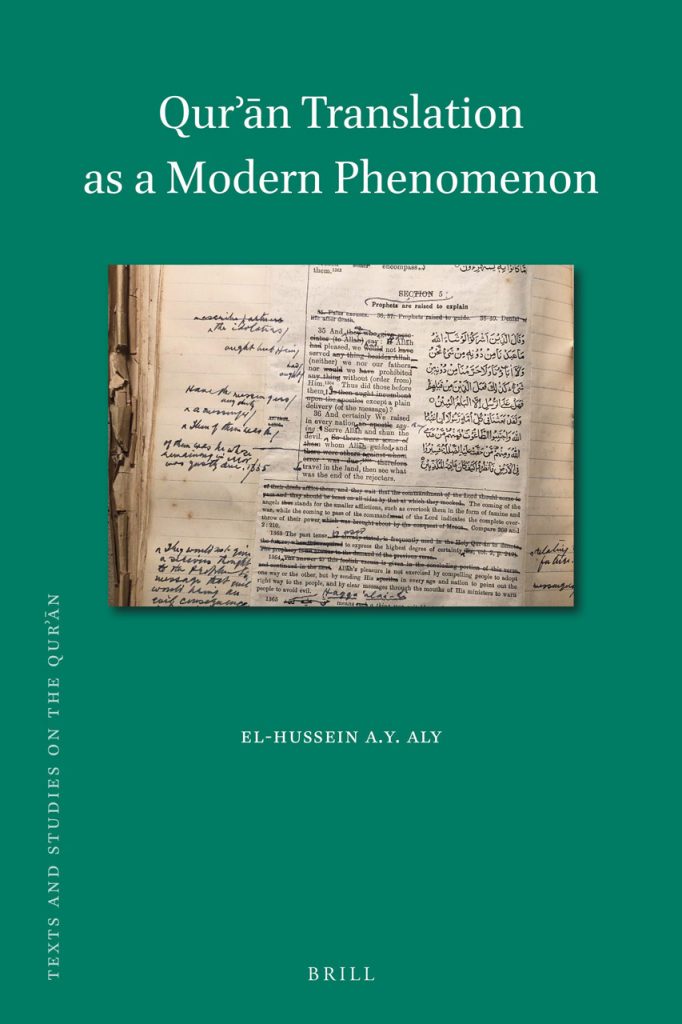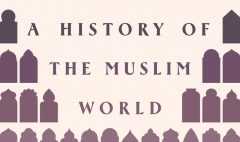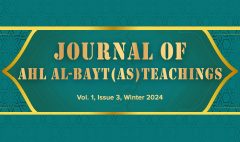Qur’ān Translation as a Modern Phenomenon
January 1, 2024 2024-01-29 3:39Qur’ān Translation as a Modern Phenomenon

Qur’ān Translation as a Modern Phenomenon
Qur’ān Translation as a Modern Phenomenon
By El-Hussein A.Y. Aly
Series: Texts and Studies on the Qurʾān, Vol. 21
Publisher: Brill
Publication Date: September 28, 2023
It is a well-established fact nowadays that modernity impacts Islam, but there has not been much focus on how modernity impacts the Qur’ān, the foundational text of Islam and the verbatim word of God. This book argues that the early Muslim Qur’ān translations into English are attempts to reconcile the Qur’ān with modernity by producing translations that encompass modern concepts and interpretations of the Qur’ān. Are these modern concepts and interpretations valid or they alter the word of God? This is the main question that the book attempts to answer, particularly that these early translations have affected and still affect Qur’ān translation.
About the Author
El-Hussein Aly was Professor of Translation Studies at Helwan University, Egypt and a teacher of Arabic at Indiana University, USA. He had a Ph.D. in Translation Studies in 2007 from Helwan University, Egypt, and a Ph.D. in Near Eastern Languages and Cultures from Indiana University in 2023. His publications include “Women in Qur’an English Translations: Critical Intertextual, Intratextual, and Contextual Analyses”, Journal of Islamic and Muslim Studies 3.1 (2018).
Table of contents
- The Early European Qurʾān Translation Project
1.1. Attacking the Holy Book of the Turks
1.2. The Genuine Interest in Understanding Islam
1.3. The Scientific Turn of the Study of the Qurʾān
1.4. The Sacred Books of the East
1.5. European Qurʾān Translation: Assessment in Context
- Translation as Reform
2.1. Colonization, India, and the Need for Reform
2.2. The Birth of Reform and the Indian Qurʾān Translation Project
- The Rise of Muslim Translations
3.1. Interpretation of the Qurʾān by the Qurʾān and the Bible
3.2. Chronological Translation
3.3. Collaborative Translation
- Indian Muslim Translations: An Apex
4.1. Extensive Notes
4.2. Poetic Form
- Interconnectedness of Qurʾān Translations
5.1. Spirituality in Yūsuf ʿAli’s Translation
5.2. The Spiral of Influence in Qurʾān Translations
- Toward a Modernist Interpretation of the Qurʾān
6.1. The Pluralist Qurʾān
6.2. Peaceful Jihad
- Modernism, Traditionalism, and the Social Function of Qurʾān Translation
7.1. Rationality
7.2. Science
7.3. Women
- Alternative Modernities of Qurʾān Translation
8.1. The Journey of the Indian Qurʾān Translations in Europe and America
8.2. Politics, Religion and Qurʾān Translation in Egypt
8.3. Al-Azhar’s Translation: Al-Montakhab
8.4. State-Sponsored Qurʾān Translation in Saudi Arabia
8.5. Alternative Modernities: Qurʾān Translation Form and Content
Conclusion
1. The Interconnectedness of the Past and the Present: Tradition and Modernity as a Continuum
2. The Relationality of Qurʾān Translations
3. Assessment of Qurʾān Translation in Context
4. Qurʾān Translation, Interpretation, and Adaptation
Source: Brill









